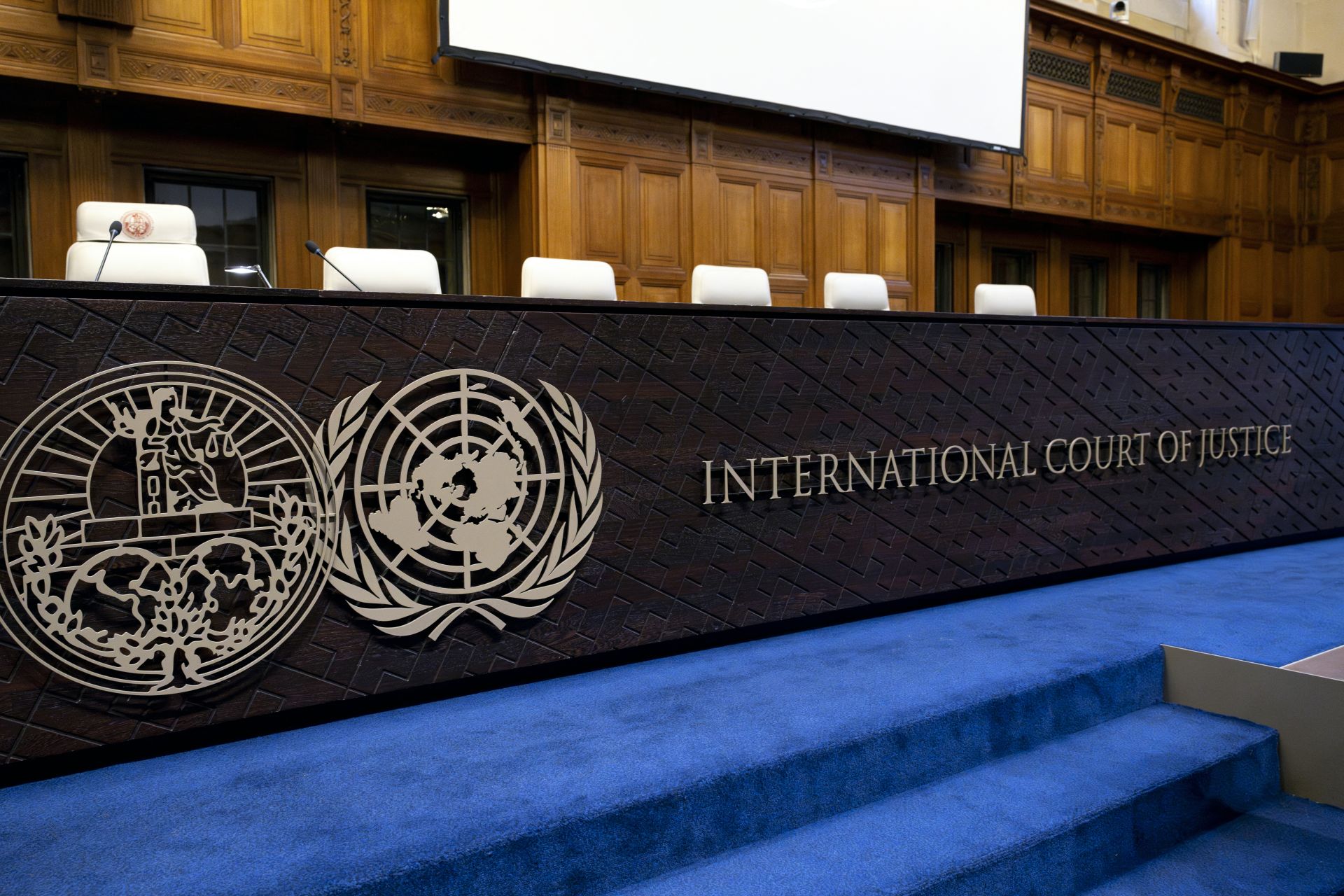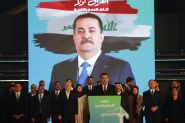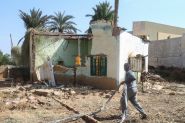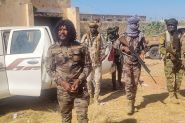- Home
- Middle East
- ICJ Throws Out Sudan Genocide Case Against UAE

This photograph shows a hearing at the International Court of Justice (ICJ) regarding South Africa’s request for a ceasefire in Gaza, in The Hague, on May 24, 2024, amid the ongoing war between Israel and Hamas. ©Nick Gammon / AFP
The top United Nations court on Monday threw out Sudan's case against the United Arab Emirates over alleged complicity in genocide during the brutal Sudanese civil war.
Sudan had taken the UAE to the International Court of Justice over its alleged support for the paramilitary Rapid Support Forces (RSF), saying it was contributing to a genocide—accusations denied by the Emiratis.
But the ICJ said it "manifestly lacked" jurisdiction to rule on the case and threw it out.
When the UAE signed up to the UN's Genocide Convention in 2005, it entered a "reservation" to a key clause that allows countries to sue others at the ICJ over disputes.
This reservation meant the ICJ did not have the power to intervene in the case.
A UAE official hailed the judges' ruling.
"This decision is a clear and decisive affirmation of the fact that this case was utterly baseless," Reem Ketait, deputy assistant minister for political affairs at the UAE foreign ministry, said in a statement to AFP.
Before the ruling, Ketait had accused Sudan of lodging the case in a "cynical attempt to divert attention from their own brutal record of atrocities against Sudanese civilians."
Since April 2023, Sudan has been torn apart by a power struggle between army chief Abdel Fattah al-Burhan and the commander of the paramilitary Rapid Support Forces (RSF), Mohamed Hamdan Daglo.
The war has triggered what aid agencies call the world's largest displacement and hunger crisis. Famine has officially hit five areas across Sudan, according to a UN-backed assessment.
The North Darfur region has been a particular battleground, with at least 542 civilians killed in the past three weeks, according to the United Nations.
The ICJ said it was "deeply concerned about the unfolding human tragedy in Sudan that forms the backdrop to the present dispute."
"The violent conflict has a devastating effect, resulting in untold loss of life and suffering, in particular in West Darfur," the court added.
As the court found that it lacked jurisdiction to go forward with Sudan's legal action, it did not rule on the fundamental merits of the case.
The court noted that "whether or not states have accepted the jurisdiction of the court... they are required to comply with their obligations (to the Genocide Convention)."
Countries also "remain responsible for acts attributable to them that are contrary to their international obligations."
A handful of pro-Sudan protesters staged a demonstration outside the Peace Palace, the seat of the ICJ in The Hague, shouting and brandishing banners, including one that read "UAE kills Sudan."
"We feel completely disappointed... We only ask for justice," said one protester, Hisham Fadl Akasha, a 57-year-old engineer.
The Raoul Wallenberg Centre for Human Rights (RWCHR), based in Montreal, called the ICJ's decision "a travesty."
"Today, one can only feel shocked—if not betrayed—by the ongoing level of indifference and impunity in the face of another genocide that is being effectively silenced and sanitized," RWCHR founder Irwin Cotler said in a statement.
'Reparations' Demanded
During hearings on the case last month, Sudan's acting justice minister, Muawia Osman, told the court the "ongoing genocide would not be possible without UAE complicity, including the shipment of arms to the RSF."
"The direct logistical and other support that the UAE has provided and continues to provide to the RSF has been and continues to be the primary driving force behind the genocide now taking place, including killing, rape, forced displacement, and looting," said Osman.
Khartoum had urged the ICJ judges to force the UAE to stop its alleged support for the RSF and make "full reparations," including compensation to victims of the war.
While the ICJ has rejected Sudan's case, the bloody conflict in Sudan shows no sign of easing.
On Sunday, the RSF struck Port Sudan, the army said, in the first attack on the seat of the army-aligned government during the country's two-year war.
With AFP
Read more



Comments